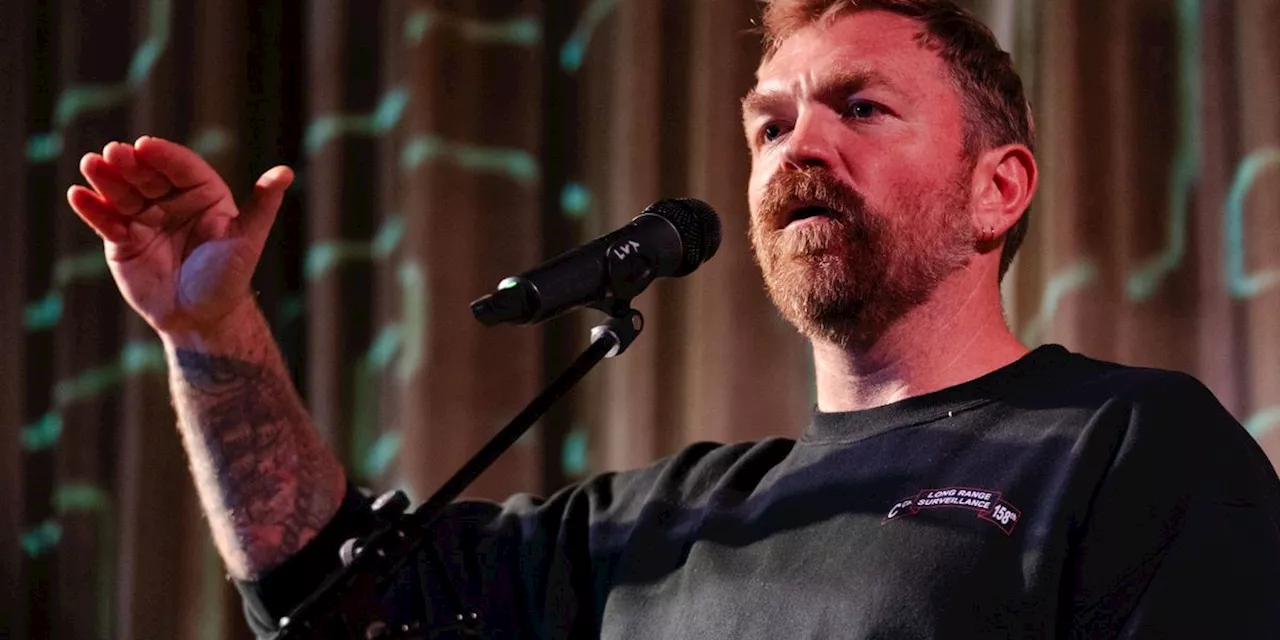Maine Democratic Senate candidate Graham Platner recently sparked conversation during a campaign event in Caribou, where he criticized the existence of billionaires in a society where many struggle to meet basic needs. In remarks made in early October but gaining traction following a viral moment involving singer Billie Eilish, Platner asserted that no one works hard enough to justify a fortune of $1 billion. He emphasized the disparity between the ultra-wealthy and working-class individuals, many of whom juggle multiple jobs yet still face financial insecurity.
Platner’s comments came during a rally where he highlighted the economic structures that allow for such wealth accumulation. “Nobody works hard enough to justify $1 billion,” he stated, resonating with audience members who nodded in agreement. He pointed out that in a state like Maine, where hard work is commonplace, success cannot solely be attributed to individual effort. Instead, he argued, it stems from systemic issues, including a tax code that benefits the wealthy.
He elaborated on the reasons behind the growing wealth gap, suggesting that the current economic landscape is not a natural occurrence, but rather a product of political decisions influenced by powerful interests. “The world that we live in today is not organic. It is not natural,” Platner explained. “It happened because politicians in Washington and the billionaires who write the policies made this happen.” He called for a reversal of the laws that allow such wealth concentration, stating, “We need to make it illegal again to do that.”
The conversation surrounding wealth inequality gained further attention when Eilish, during a recent award event in New York City, posed a question to billionaires in attendance: “If you’re a billionaire, why are you a billionaire?” Eilish’s remarks echoed Platner’s sentiments, highlighting the moral responsibility of the wealthy to contribute more to society.
In a more colorful critique, Eilish described billionaire Elon Musk as “a fucking pathetic pussy bitch coward” for not donating a significant portion of his wealth to humanitarian causes. This rhetoric has sparked discussions about the ethics of extreme wealth in a world facing numerous social challenges.
As noted by economic scholars, including Joseph Stiglitz and Thomas Piketty, the growing gap between the rich and the poor is a choice made by policymakers rather than an inevitable outcome. A coalition of economists recently called for the establishment of a new international organization to tackle global inequality, reinforcing the idea that current disparities are the result of deliberate policy decisions.
Platner has consistently emphasized the need for organized collective action among working-class individuals to counter the influence of the wealthy elite. At a separate event, he stated, “No one from above is coming to save us. It’s up to us to organize, use our immense power as the working class, and win the world we deserve.” His campaign is focused on mobilizing the workforce to challenge what he describes as the oligarchs’ stranglehold on political and economic power.
This debate about wealth and responsibility continues to resonate with voters, particularly as the election draws nearer. Platner’s challenge to the status quo reflects a broader sentiment among many who advocate for systemic change to address inequality in the United States. As the discussion unfolds, both Platner and Eilish’s comments serve to highlight the urgent need for a reevaluation of wealth distribution and its implications for society.
